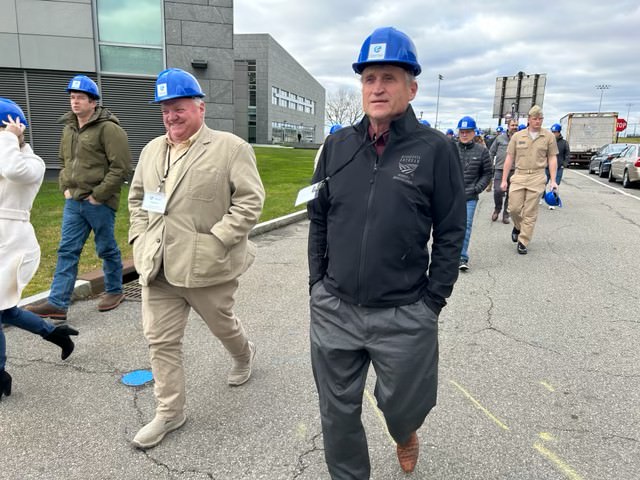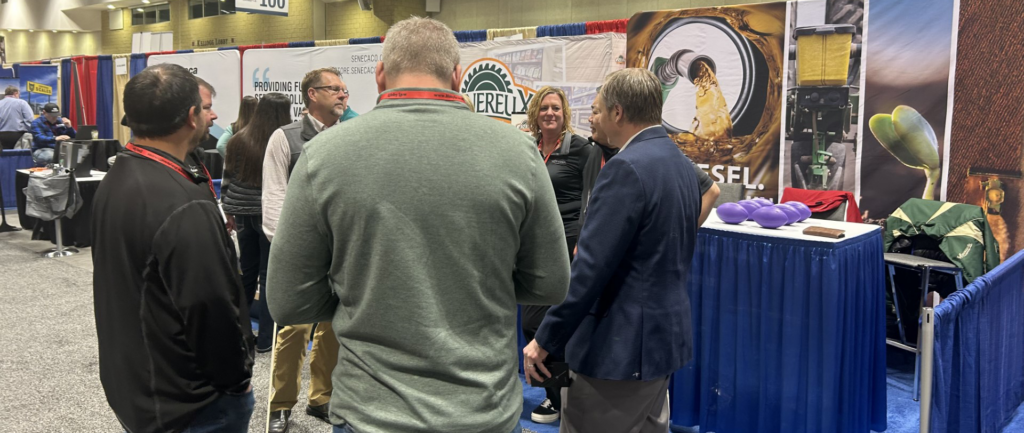Minnesota farmers arrived in New York City eager and ready to express biodiesel’s success story during the Clean Fuels Alliance America’s (Clean Fuels) New York City Big Apple tour.
Clean Fuels hosted its 13th tour in the Big Apple Dec. 10-13. Minnesota Soybean Research & Promotion Council (MSR&PC) Director Paul Freeman attended alongside United Soybean Board Director Lawrence Sukalski to learn more about New York City’s growing use of biodiesel.
New York City began using biodiesel in 2000 and continues to support the industry by using biodiesel/Bioheat fuel, as well as the introduction of renewable diesel and sustainable aviation fuel.
“It’s important we keep coming back here because our work is not done,” Freeman said. “More advancement in sustainable aviation fuel is what we’re talking about now, and we want to make sure it’s done right. We worked hard to do biodiesel right and made great progress with that. But now, this new step is a little bit different, because the consumer is asking more about what we’re producing and trying to connect more. It’s up to us to make sure we’re delivering what they’re asking for.”
Freeman and Sukalski started the Clean Fuels tour at SUNY Maritime College with an introduction and industry overview from Clean Fuels CEO Donnell Rehagen and Director of Outreach and Development Tom Verry. The group also heard from alumni Bill Fitch on the history of the campus and the students’ experiences there.
After the classroom style sessions, the group grabbed their hardhats for safety and headed out to the training ship Empire VII.

Two cadets split the group and led the tours around the 1,000-person ship in humanitarian times, that was delivered this year. The cadets have a chance to have hands-on learning with the Empire VII, where they can take training in one of the eight classrooms, on the training bridge, in workshops and in lab spaces to fully prepare for their careers.
SUNY Maritime College still has a fort on campus that is used for classroom space that the group also toured.
Back on the bus, the group chatted about what they saw at the college and how it could be a great opportunity for biodiesel and sustainability with the training ship that is used there.
“Maritime is a large industry,” Verry said. “We have the ferry operators, tugboats, towboats, ocean containers, cruise ships, etc. One thing in common is they want to make sure any biodiesel that they are using is coming from a sustainable feedstock. Lucky for us we have a great partnership with soybean farmers that we can show to the maritime industry. We’re responding to their demand for lower carbon inputs to make lower carbon fuel.”
The final tour of day one was at the firehouse for Engine 54/Ladder 4, “The Pride of Midtown.”
“I love what the soybean farmers are doing,” Verry said. “They’re working to capture more of the efficiencies. To show that their soybeans are being produced more efficiently with lower carbon footprint, which translates throughout the supply chain.”
As the farmer leaders entered the firehouse, the garage doors lifted open and the two trucks drove out for an emergency call. The off-duty fire fighters hosted the group, showing them around and answering questions.
One of the soy-based products discussed with firefighters is the soy-based fire-retardant spray that is being tested.
Day two kicked off with a welcome from Elizabeth, N.J., Mayor J. Christian Bollwage. The day centered around environmental impact talks and how biodiesel and renewable fuels drive the work of industry partners.
Students from Kean University attended and participated in a sustainability group discussion with the farmer leaders.
The farmers and Clean Fuels staff started raising their hands to answer the questions involved in what work is being done to be more sustainable and how soybeans are used. The students, most of whom were unfamiliar with soybean production, asked about their concerns for farming sustainably, about practices farmers use and about the life of a soybean producer.
The discussion was moderated by Colleen Klein, New York Corn and Soybean Growers Association executive director.
“We’re really grateful for the opportunity that we had today to be able to speak to students who are really excited about the future of sustainable agriculture practices,” Klein said. “It was a wonderful opportunity to be able to share and have a good back-and-forth and more importantly to be a resource for them in the future as they go forward and hopefully, they’ll reach out to us with questions.”
To continue the day, Johnathan Phillips, CEO of Groundwork Elizabeth (GWE), gave a presentation to the attendees of the Big Apple tour.
GWE is a New Jersey based nonprofit community group founded in 2003 that worked with Clean Fuels to successfully compete for a U.S. EPA environmental justice grant.
With all of the great information from the tour, the final day was still jam packed with important information for the group.
The delegation met with Keith Kerman, deputy commissioner, chief fleet officer with the City of New York/Department of Citywide Administrative Services, on the current use of biodiesel and future use in the city.







